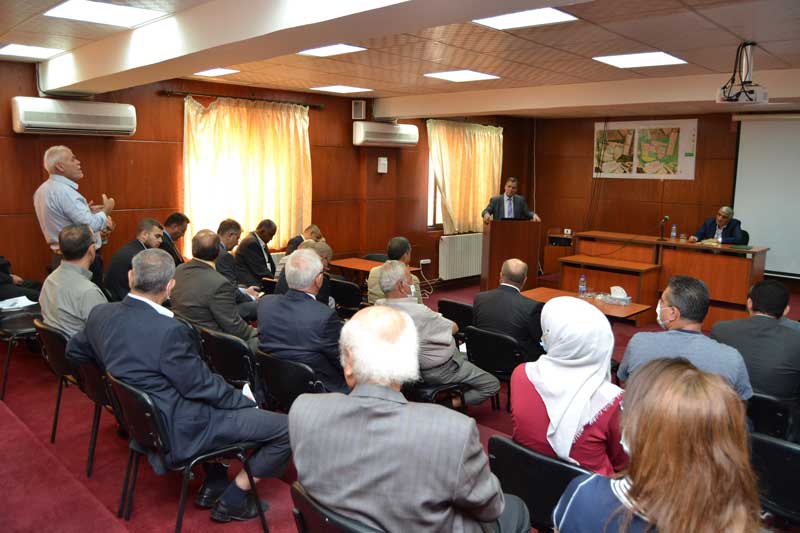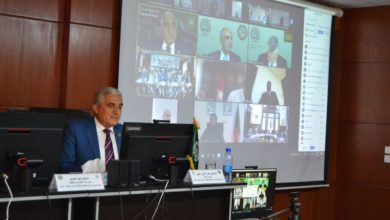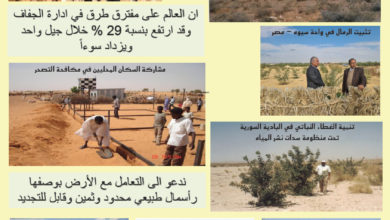ACSAD organization research and projects on Sludge.
Under the patronage of the Director-General of the Arab Center for the Studies of Arid Zones and Drylands (ACSAD), Dr. Nasr Edin Obaid, and in the presence of a large number of experts, researchers, and interested, the head of the Biotechnology and laboratories Department in the organization Dr. Hassan Dergam, at ACSAD headquarters in Damascus, yesterday, presented a scientific presentation entitled: “Some researches and projects implemented in ACSAD in the field of safe use of sewage sludge in agriculture.
In a speech at the opening of the presentation, the Director-General stressed the importance of Sewage Sludge in agriculture through fertilization of land and increasing the production capacity, pointing to its problems and dangers in indiscriminately and without guidance use, its disposal methods on the Arab and international levels, and the treating methods of it before using to benefit from it.
Dr. Nasr Edin Obeid noted the experience of ACSADin the field of the safe use of Sewage Sludge in agriculture by adding soil in quantities that ensure the element of nitrogen for cultivated crops and study the effect of sewage sludge on the quantity and quality of these crops through the accumulation of the most significant heavy elements in soil and plant tissue.
Dr. Hassan Dergam reviewed the recent research results carried out by ACSAD in the field of safe use of sewage sludge in agriculture. The first research examined the possibility of using some plants accumulating heavy elements (maize, sunflower) in ridding the treated and fermented Sewage Sludge of heavy elements and improve its physical and chemical properties for safe use in agriculture.
The second research also examined the possibility of preparing compost from sewage sludge and plant residues and then extracting Humic and Fulvic acids to test its role in stimulating wheat growth and increasing its productivity. At the same time, the third research aimed to study the possibility of using the treated and fermented sewage sludge in fertilizing the pasture plant (Atriplex halimus or Saltbush) and explaining its role in increasing the fresh and dry productivity of these tow pasture plant.
The fourth research was concerned with assessing the use of sewage sludge, pruning residues, and volcanic tuff in the production of forest seedlings (pine, cypress, Acacia, and Robinia) by obtaining a high-nutrient nursery mix that matched the standard specifications for the production of forest seedlings in the nursery.
In conclusion, a meaningful discussion took place on the subject, during which Dr. Dergam answered the attendees` questions and queries.




